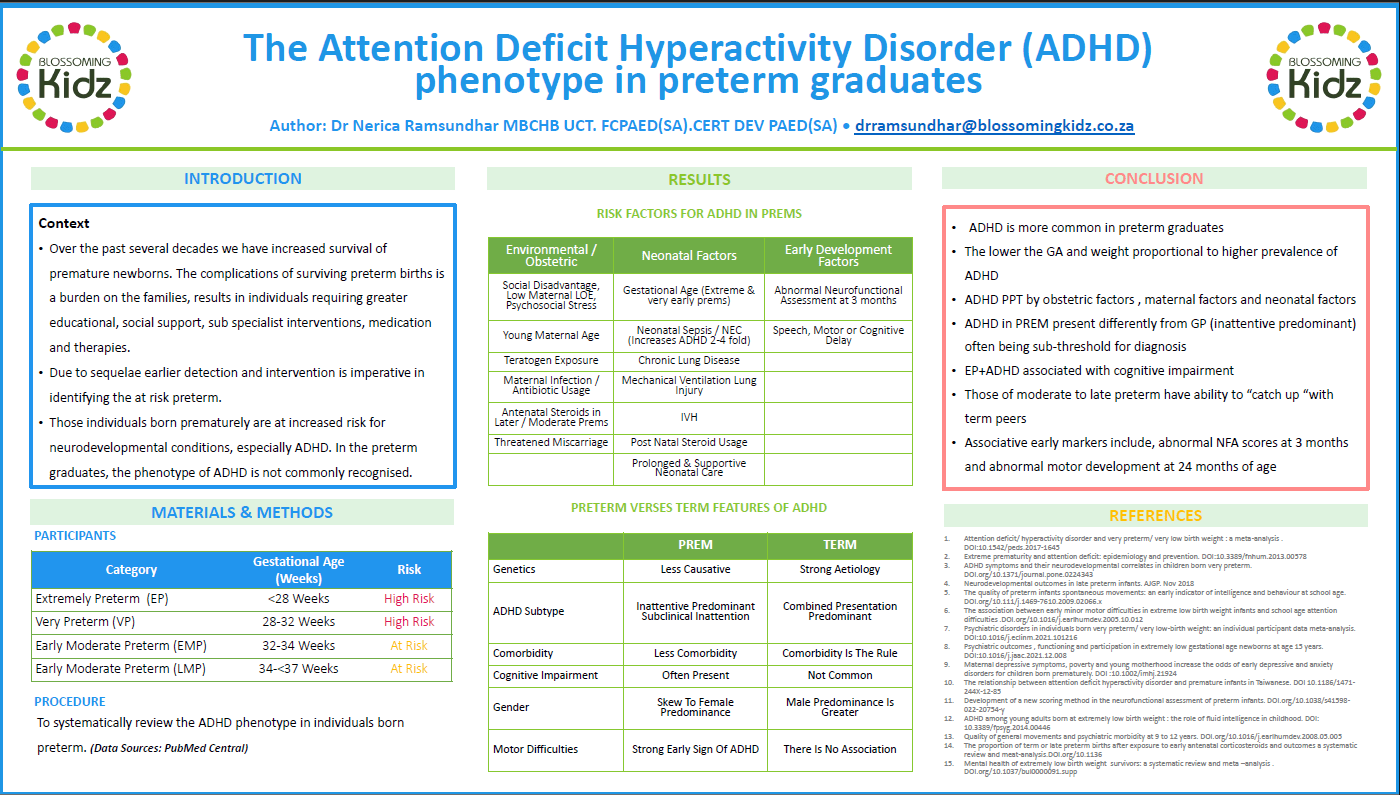The Attention Deficit Hyperactivity Disorder (ADHD) Phenotype In Preterm Graduates
The Attention Deficit Hyperactivity Disorder (ADHD) phenotype in preterm graduates
Context: Those individuals born prematurely are at increased risk for neurodevelopmental conditions, especially ADHD. In the preterm graduates, the phenotype of ADHD is not commonly recognised.
Objective:
1. To systematically review the ADHD phenotype in individuals born preterm
Data Sources: PubMed Central
Conclusion: Due to sequelae, earlier detection and intervention is imperative in identifying the at risk preterm. The prevalence of ADHD in preterm graduates is far higher than in those born at term gestation. ADHD in the preterm graduates presents predominantly with the inattentive sub-type. The exception is those of male gender born with extreme prematurity that had a turbulent neonatal course and those classified as very premature from disadvantaged social backgrounds that displayed the hyperactive –impulsive ADHD. The genetic heritability is less associated with ADHD aetiology in those born prematurely. The low the gestational age and weight is associated with greater, later development of ADHD. Moderate preterm individuals exhibit a period of developmental catch up to term counterparts. ADHD in the preterm individuals is more commonly associated with comorbid cognitive delays. An early risk marker of ADHD in preterm is an abnormal neuro-functional assessment at 3 months, corrected gestational age, and motor co-ordination difficulties observed at 12 and 24 months. Premature graduates have a distinctly different ADHD phenotype in contrast to their term counterparts.
Nerica Ramsundhar
Blossoming Kidz
South Africa
